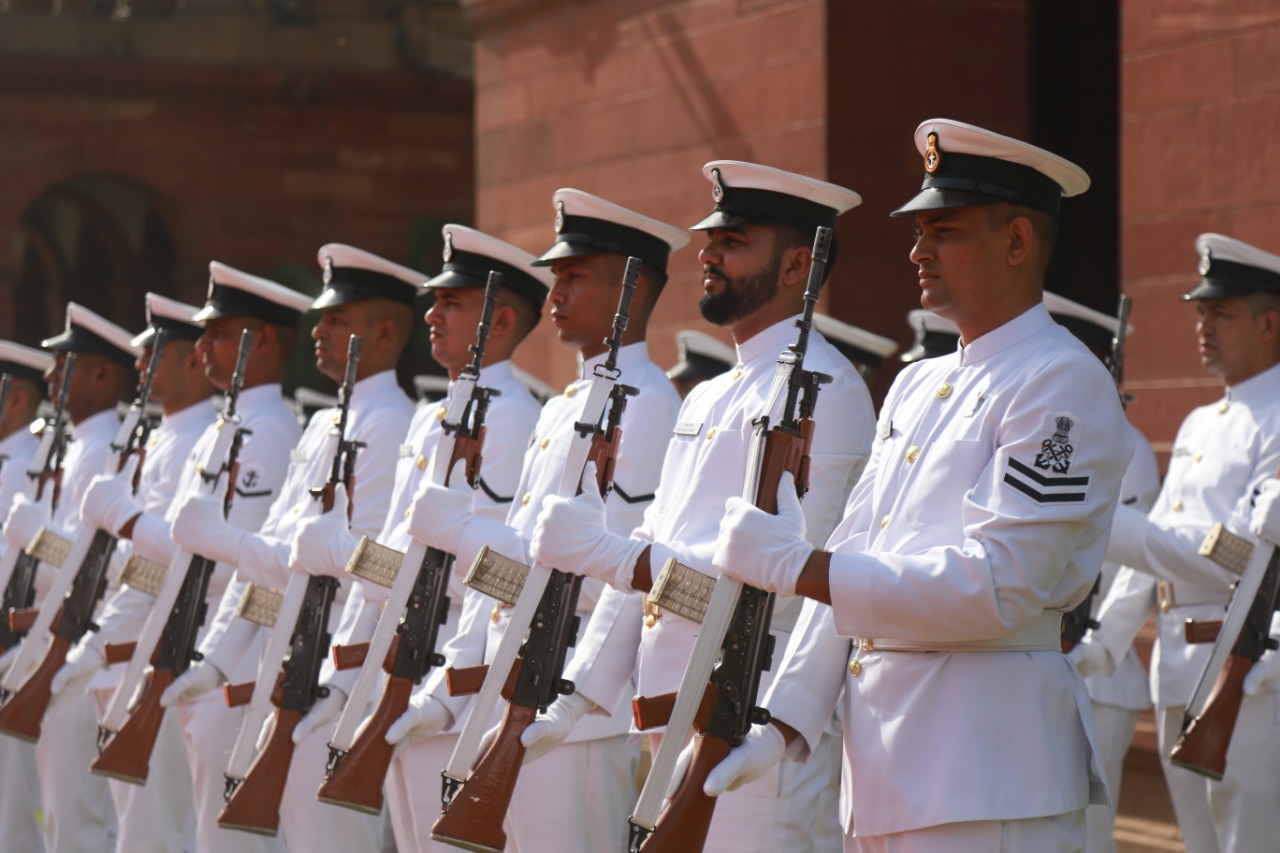Indian Navy celebrates its Navy Day on the 4th of December every year because, in the 1971 war with Pakistan, the Indian Navy carried out Operation Trident where their missile boats lethally destroyed the Karachi Harbor with their bombings. This led to the liberation of Bangladesh.
Now, reflecting on this historic achievement reveals its ongoing relevance in today’s shifting geopolitical and societal dynamics in Bangladesh.
The Indian Navy’s Role in Bangladesh’s Liberation
In 1971, as the Pakistani regime carried out one of the most heinous genocides in modern history, targeting Bengali Hindus and intellectuals, the Indian Navy played a pivotal role in turning the tide. Operation Trident and Operation Python were instrumental in crippling Pakistan’s naval capabilities, ensuring maritime supremacy for India and paving the way for the birth of an independent Bangladesh. The Navy’s precision, courage, and strategic acumen exemplified India’s commitment to justice and humanitarian intervention.
Rising Islamist Radicalism in Bangladesh
3 Months back, we all witnessed student protests in Bangladesh which led to the Bangladeshi Prime Minister Sheikh Hasina’s resignation. This put the country into uncertainty and chaos as protesters stormed the parliament and wreaked havoc on the institution. Along with civil unrest targeted attacks on Hindu minorities in the country intensified just hours after the news became public.
Reports suggested Jamaat Islami, the radical Islamist organization and their supporters played a key role. Thousands of Jamatis joined the student protest and they turned it into a nationwide revolt. Now reports say that Jamaat is the largest opposition party in Bangladesh even bigger than the BNP or the Bangladesh nationalist party. just look at what the Jamaat website says and I’m quoting since its Inception the Jamaat Islami has been working to implement the Islamic code of life to establish Islam in its entirety. The Jamaat Islami strives to present the real picture of Islam to all citizens. They do not talk about human rights they do rather talk about human rights and democracy but their track record is pretty bad.
Since Shiekh Hasina’s ouster, Hindu groups have reported 2000 attacks on them. The world has also witnessed the arrest of a Hindu Priest named Chinmoy Krishna Das (ISKCON) in Chattogram. In the new Bangladesh, it’s okay to ransack government buildings it’s okay to target minorities it’s okay to destroy their houses and shops it’s also okay to insult the founder of Bangladesh. But an alleged flag mixup God forbid the Republic of Bangladesh will collapse and
don’t get us wrong it’s not right to disrespect any country’s flag but surely this response is high-handed and extreme. We talking about a sedition case against a religious leader from a vulnerable minority if convicted faces life imprisonment is this how Bangladesh is reaching out to Hindus by targeting priests over unproven allegations and locking them up?
Bangladesh’s Liberation in 1971 many of their leaders collaborated with Pakistan’s Army and it tells you what they stand for not secularism, not Bengali nationalism, they stand for Islamism.
Bangladesh’s Economic Decline and Its Parallels with Pakistan
This regime change hurt their economy which should be a big worry for Bangladesh because economy is what they were getting right. This country was among the fastest growing economies in the world and now it is in chaos which could undo decades of progress. Trade has already been disrupted. Bangladesh can’t afford such disruptions as it has bills to pay. Debt
repayments are due. Bangladesh owes more than $100 billion. They also reached out to Beijing for help. They wanted a loan from China. Bangladesh asked for around $5 billion but in the Chinese currency. They’ll become more vulnerable to loan sharks like China, Beijing could rush to help Daka and push it into a debt trap just like Pakistan.
The Geopolitical Tug-of-War: Bangladesh as a Vassal State
As economic and political crises deepen, Bangladesh risks becoming a pawn in the strategic competition between global powers. Both the United States and China are likely to vie for influence in the region, leveraging Bangladesh’s vulnerabilities to serve their strategic interests. This could further undermine Bangladesh’s sovereignty, leading to long-term consequences for regional autonomy and stability.
Celebrating the Indian Navy’s Legacy
In this context, the Indian Navy’s victory in 1971 serves as a beacon of hope and resilience. Its role in liberating Bangladesh stands as a testament to India’s commitment to justice, democracy, and humanitarian values. As we honour the Navy’s legacy on Navy Day, we are reminded of its importance in countering both traditional and non-traditional security threats.
The 1971 victory is not just a story of triumph but also a lesson in the importance of decisive action against injustice. As the challenges of radicalism and geopolitical pressures grow, the Indian Navy’s preparedness, professionalism, and courage remain pivotal to securing peace and stability in the region. Let us celebrate Navy Day with pride, gratitude, and resolve to uphold the values that our brave sailors fought for over five decades ago.

